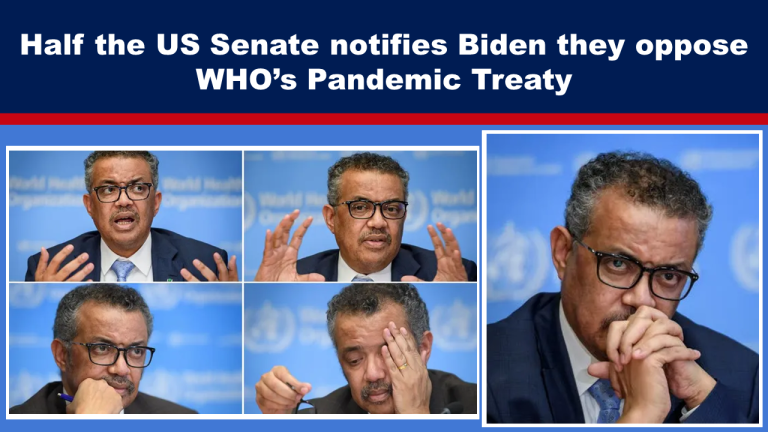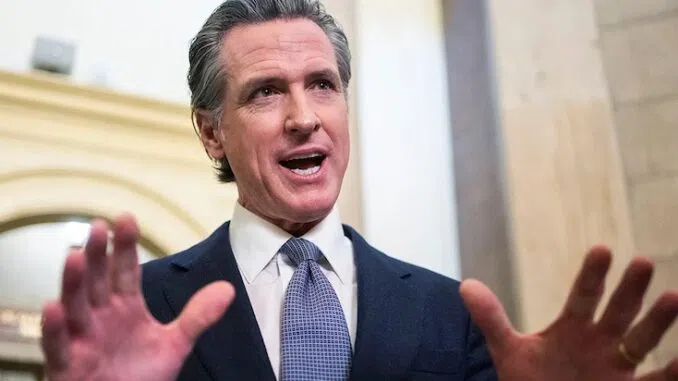Donald Trump Jr. has delivered a fiery accusation, claiming that President Joe Biden is laying the groundwork for World War III. His statements come as tensions escalate globally and just weeks before his father, Donald Trump, is set to return to the White House.
Trump Jr.’s Criticism: “Imbeciles in Washington”
In a scathing post on X (formerly Twitter), Trump Jr. criticized what he called the “imbeciles” in the Biden administration for their recent military decisions. He focused specifically on the authorization for Ukraine to use U.S.-made long-range missiles for strikes deep inside Russian territory.
He didn’t hold back, stating:
“The Military Industrial Complex seems to want to make sure they get World War 3 going before my father has a chance to create peace and save lives. Gotta lock in those $Trillions. Life be damned!!! Imbeciles!”
This pointed critique comes as the Biden administration faces mounting scrutiny over its handling of the Ukraine conflict.
Biden Greenlights Risky Missile Strikes
Reports confirm that President Joe Biden has approved the use of long-range American-made ATACMS missiles by Ukraine to hit targets inside Russia. This marks a significant policy reversal, as the administration previously restricted their use, citing fears of Russian retaliation.
The decision has sparked intense debate, with critics arguing it’s a high-risk gamble that could provoke a broader conflict involving NATO. Moscow has long warned that Western weapons striking deep within Russian borders would be perceived as direct involvement by NATO, potentially escalating the war beyond Ukraine.
Trump’s Peace-First Approach
Donald Trump’s upcoming presidency has fueled concerns among Democrats, European allies, and Ukrainian officials. During his re-election campaign, Trump promised to prioritize diplomacy over continued military aid. He cast doubt on the necessity of unconditional support for Ukraine, suggesting that a peaceful resolution should take precedence.
This stance contrasts sharply with Biden’s current strategy. Many in Washington and abroad worry that Trump’s return to office could result in a pullback of Western support for Ukraine, leaving the embattled nation vulnerable to Russian aggression.
Why Now? Timing Under Scrutiny
The timing of Biden’s policy shift has raised eyebrows. Critics speculate it’s a last-ditch effort to bolster Ukraine’s military capabilities before Trump takes office on January 20. The outgoing administration appears eager to solidify its stance on the Ukraine conflict, potentially locking Trump into a more challenging geopolitical situation upon his return.
Moscow’s Response
Russia has not taken these developments lightly. President Vladimir Putin has repeatedly warned that such actions would force Russia to take “appropriate decisions in response to the threats.” While details of these potential responses remain unclear, Moscow’s rhetoric suggests a willingness to escalate the conflict if provoked further.
The Bigger Picture: Military-Industrial Complex
Trump Jr.’s criticism also highlights a broader concern: the influence of the military-industrial complex on U.S. foreign policy. By framing the situation as a profit-driven agenda, he underscores the belief that defense contractors and other stakeholders benefit financially from prolonged conflicts.
His fiery remarks resonate with many Americans who feel disillusioned by endless wars and the heavy financial burden of U.S. involvement in overseas conflicts.
What Lies Ahead?
With Trump poised to assume office, the geopolitical landscape is bracing for change. His administration’s policies could dramatically alter U.S. involvement in Ukraine, potentially shifting the global balance of power.
The Biden administration’s recent moves, meanwhile, suggest an urgency to secure its legacy, even as critics question the long-term implications of these decisions.
Conclusion
The Biden administration’s approval of long-range missile strikes deep into Russian territory has intensified an already volatile situation. Trump Jr.’s fiery critique has added fuel to the debate, raising critical questions about the motivations behind U.S. foreign policy decisions.
As the world watches, one thing is clear: the next few months will be pivotal in shaping the future of the Ukraine conflict and U.S.-Russia relations.
FAQs
1. What are ATACMS missiles, and why are they significant?
ATACMS (Army Tactical Missile System) missiles are long-range, precision-guided munitions. Their use allows Ukraine to strike targets deep inside Russian territory, escalating the conflict significantly.
2. Why did the Biden administration reverse its policy on these missiles?
Reports suggest the policy shift is an attempt to strengthen Ukraine’s position before Donald Trump’s administration potentially alters U.S. support for the country.
3. How does Trump’s approach to Ukraine differ from Biden’s?
Trump has emphasized diplomacy and questioned the necessity of unconditional aid to Ukraine, contrasting Biden’s aggressive military support.
4. What are the risks of allowing Ukraine to strike deep into Russia?
Striking deep into Russian territory risks provoking a broader conflict involving NATO, which could have catastrophic global consequences.
5. How does the military-industrial complex influence U.S. foreign policy?
Critics argue that the military-industrial complex prioritizes profit over peace, driving decisions that prolong conflicts to secure lucrative defense contracts.
Is this content hitting the mark for you? If so, consider supporting my work—buy me a virtual coffee! 




